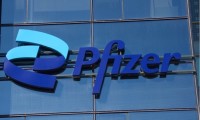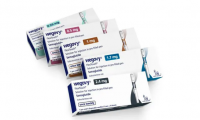-
Pfizer Drops Early-Stage Obesity Drug Following Disappointing Phase I Data
- Source: drugdu
- 161
- June 28, 2023
-
Pfizer shelves one oral pill, pivots to another in weight loss drug race
- Source: drugdu
- 107
- June 28, 2023
-
MSD extends peptide collaboration with IRBM
- Source: drugdu
- 101
- June 25, 2023
-
Merck’s efinopegdutide shows promise in nonalcoholic fatty liver disease
- Source: drugdu
- 128
- June 16, 2023
-
FDA warns about compounded semaglutide-based drugs
- Source: drugdu
- 120
- June 2, 2023
-
After price cuts, Eli Lilly inks $13.5M settlement in long-running insulin lawsuit
- Source: drugdu
- 120
- June 1, 2023
-
ElevateBio Takes Title of Largest 2023 Funding with $401M Series D
- Source: drugdu
- 114
- May 26, 2023
-
Eli Lilly to sell low blood sugar drug Baqsimi to Amphastar in deal worth over $1bn
- Source: drugdu
- 167
- April 28, 2023
-
WHO considers adding obesity drugs on its ‘essential medicines’ list
- Source: drugdu
- 128
- April 6, 2023
-
maker of Wegovy ‘skinny jab’ is funding NHS weight-loss services
- Source: drugdu
- 162
- April 4, 2023
your submission has already been received.
OK
Subscribe
Please enter a valid Email address!
Submit
The most relevant industry news & insight will be sent to you every two weeks.













